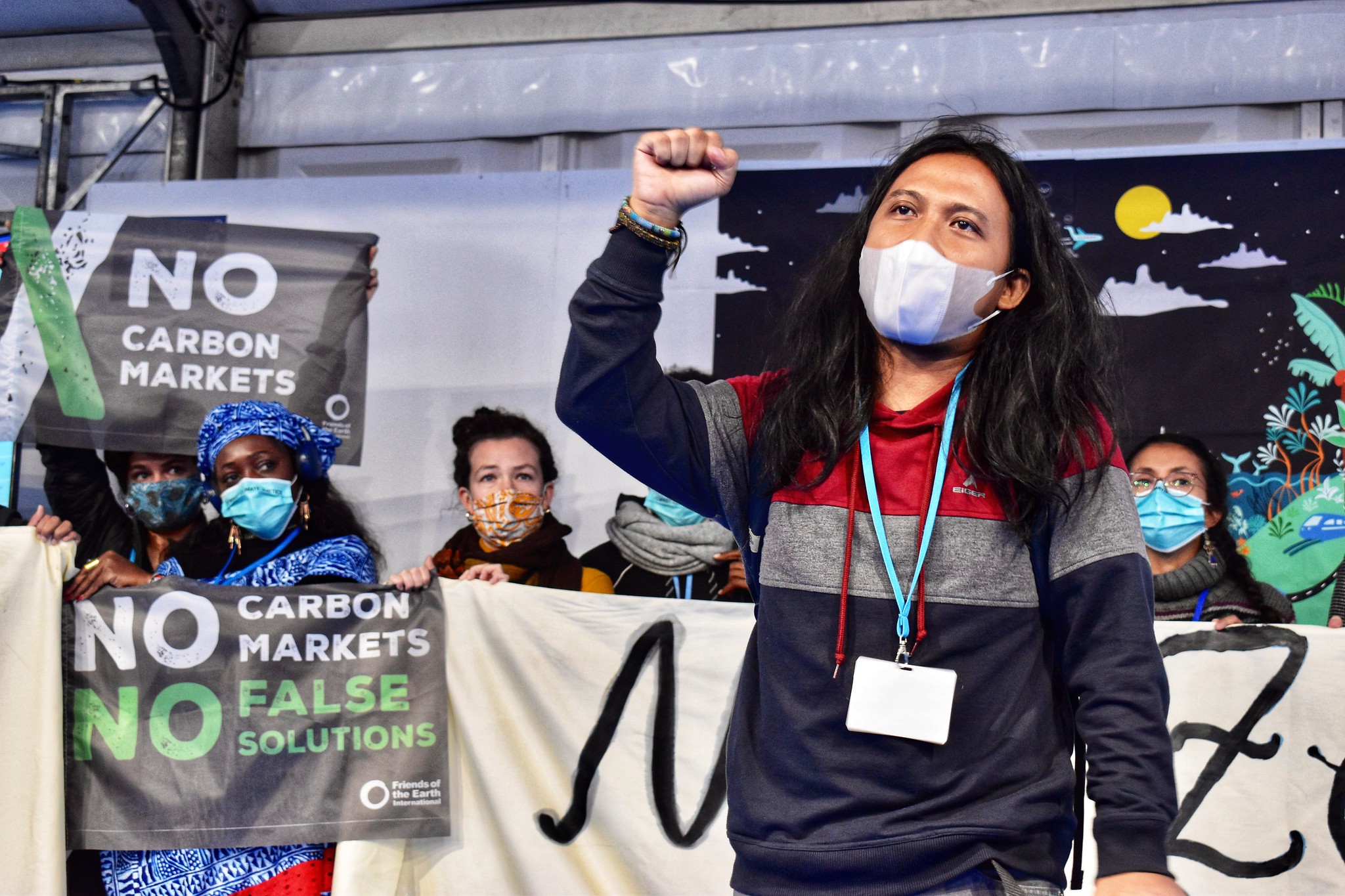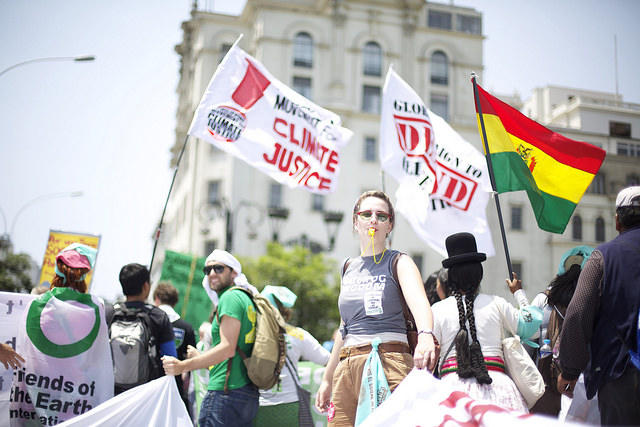
Lima: seeds of resistance
You probably noticed a range of different perspectives on the outcome of the Lima climate talks in the media in the last week or so. From Lima as a failure that did nothing to avert catastrophic climate change to Lima producing a balanced agreement that provides a foundation for a Paris deal. Could both ends of the spectrum hold some truth?

The former is where our analysis sits. In terms of responding to the urgency of the climate crisis, and tackling climate injustice, then undoubtedly Lima must be viewed as a complete failure.
Lima saw total inaction on cutting emissions before 2020, and rich industrialised countries making concerted efforts to avoid responsibility as historical polluters to do more to tackle climate change. The message of the Intergovernmental Panel on Climate Change’s 5th Assessment Report earlier this year – human induced climate change is real, its impacts are already being felt, it will cause untold misery for billions unless we act now – hammered home by yet another super-typhoon hitting the Philippines, fell on deaf ears.
The latter however is not entirely wrong. While the weak language of the ‘Lima Call for Climate Action’ fails to provide a solid and fair basis for a deal in Paris, crucially it neither does it lock in a very limited and unfair foundation for agreement next year.
That was the compromise that the global south made when it agreed to the final text produced in the early hours of Sunday morning, putting their trust in the COP Presidency to take key issues of adaptation, finance, equity, loss and damage, technology and transparency seriously in the year of negotiations leading up to the all-important Paris talks at the end of 2015.
The other hope that Lima gives us is the growing strength of peoples’ movements acting together both to challenge governments and win the local dirty energy fights critical to averting catastrophic warming. ‘You tried to bury us but you forgot that we are seeds that will grow into a forest of resistance’ was the refrain of the International Youth Climate Movement spokeswoman Ruth Nyambura in the closing plenary.
From where things stand now its very unlikely that Paris will deliver on climate science and our justice demands, but it is a crucial stepping-stone to victory. It is also a vital galvanising moment for the resilient, sustainable peoples’ movement we need to create the political space for action.
Join us in the year ahead as we work with coalition partners and allies to revitalise the movement in Scotland. Our movement secured the strongest domestic climate legislation in the world back in 2009. Let’s see what we can achieve this time.
